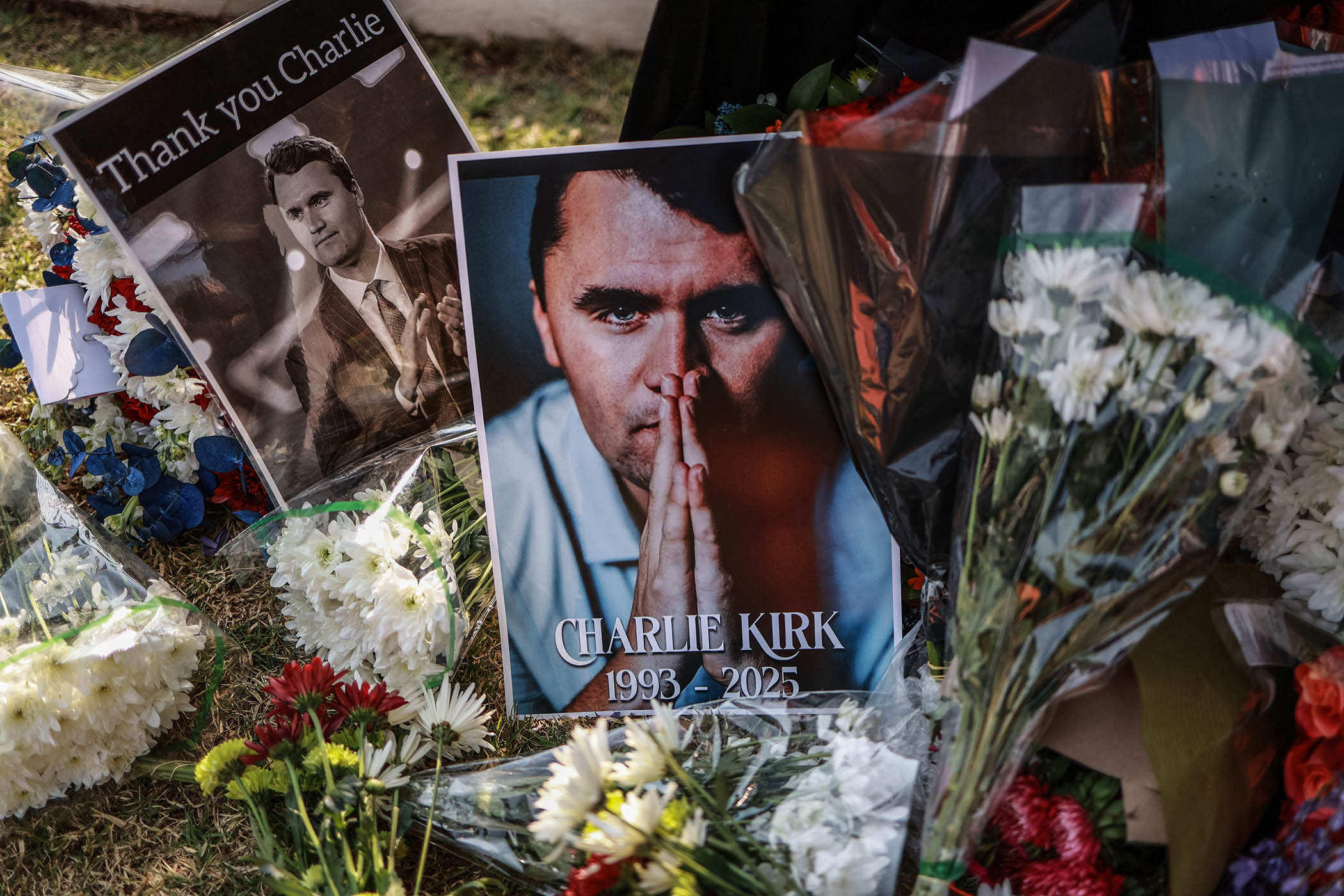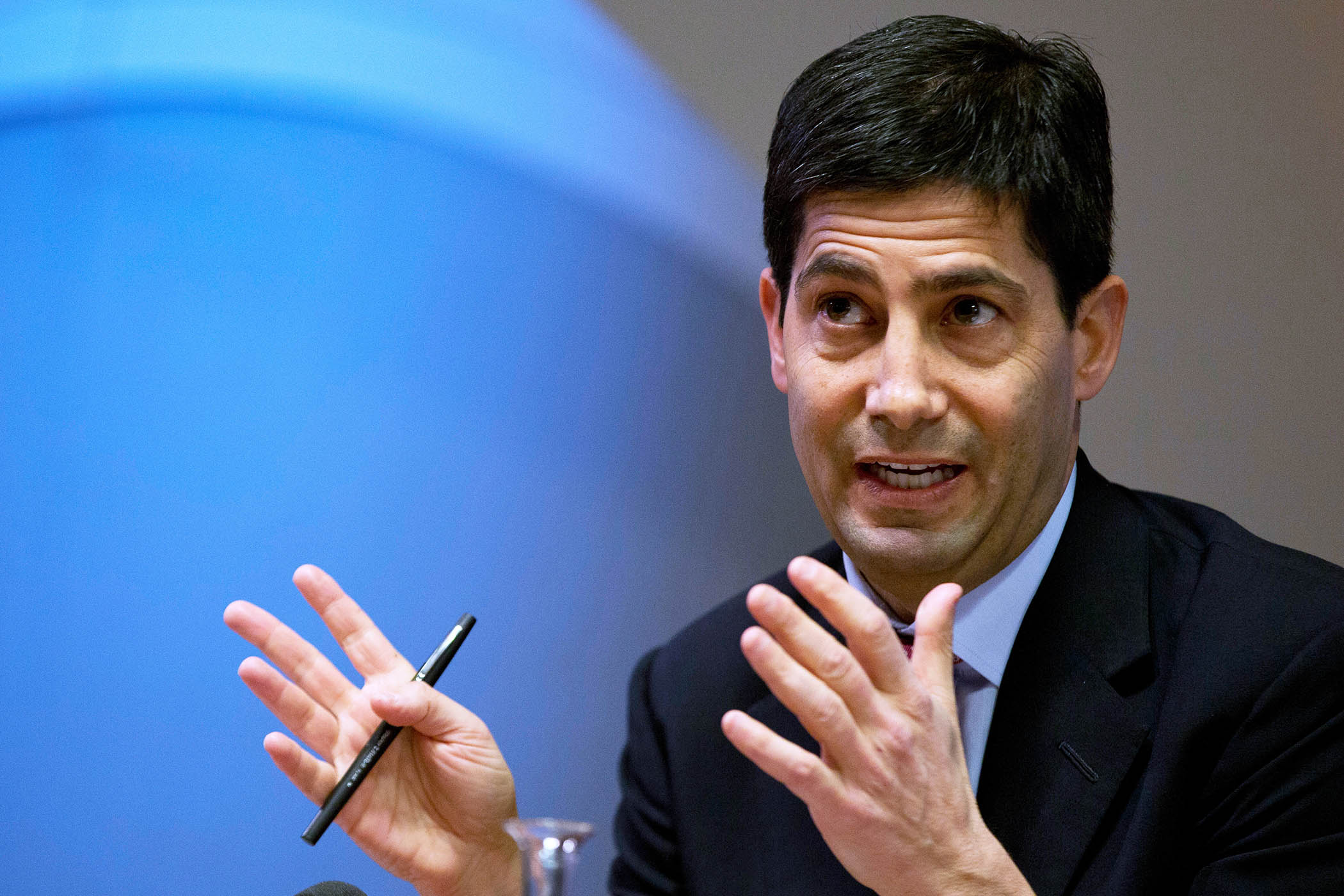The cold-blooded murder of Charlie Kirk evoked many emotions. Here was a 31-year-old father of two, whose life was cut short by an assassin's bullet; thoughts went to his young family and those who loved and knew him. Some worried that this latest instance of political violence could only lead to more. A few, including Spencer Cox, the Republican governor of Utah, urged calm and prayer.
Not so many of the loudest voices on the right. Their reaction was to blame political opponents. Elon Musk denounced the left as “the party of murder”. Congresswoman Anna Paulina Luna, a Florida Republican, shouted down Democrats on the House floor: “Y’all caused this. You fucking own this.”
But the most worrisome statement came from the Oval Office, where President Trump used a rare formal address to blame the “radical left” for the killing.
It is this reaction – casting blame and seeking retribution rather than calming tempers – that has led many to ask whether the Kirk murder is a turning point in US politics. “Is this the end of a dark chapter in our history,” Governor Cox asked, “or the beginning of a darker chapter?”
I fear it is neither. Instead it is part of a larger pattern where politics is not a competition between ideas but a civil war between two sides. “Charlie Kirk is a casualty of war,” Steve Bannon, Trump’s former political adviser, remarked. “We are at war in this country.”
The reaction to Kirk’s murder is another step along a path towards authoritarianism that many have feared and some warned against.
Voices on the right are trying to weaponise it to go after their political adversaries. White supremacists like Matt Forney compared Kirk’s death to the 1933 burning of the Reichstag – an act that gave Hitler and his Nazis the excuse to go after their political opponents. “It is time for a complete crackdown on the left,” said Forney. “Every Democratic politician must be arrested and the party banned.”
Lest anyone think this is an overreaction explained by the moment, Stephen Miller, Trump’s chief policy guru, said much the same on Fox News two weeks before Kirk’s killing. “The Democratic party is not a political party,” Miller told Sean Hannity. “It is a domestic extremist organisation,” intimating that there is no place for it in American political life.
Related articles:
I observe this development with deep sadness but not with surprise. I am an American by choice – an immigrant who came to the United States more than 40 years ago in search of a better life and larger opportunities. I found both. I married the love of my life, succeeded professionally and even had the extraordinary privilege of representing my adopted country at Nato. Where else can a foreigner succeed, as I did, but in America?
And yet, for the past decade, I have looked on with growing concern as my new home showed signs of a country slipping into authoritarianism. The norms, rules and basic rights that are the foundations of democracy have been steadily eroded.
Newsletters
Choose the newsletters you want to receive
View more
For information about how The Observer protects your data, read our Privacy Policy
America has followed this path since 20 January this year. Trump controls not only the executive but, through his party and his past judicial appointments, Congress and the highest court, which, until now, has given the president leeway to execute his power in unprecedented ways.
Now he and his party are moving to retain power through partisan redistricting designed to secure Republicans their congressional majority. Is banning the opposition party next?
Kirk’s death may or may not produce this outcome. But even if the moment does not provide that spark, no one should be surprised when it actually happens.
Ivo Daalder is the former US ambassador to Nato
Photograph by Phill Magakoe/AFP via Getty Images


